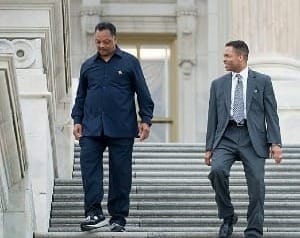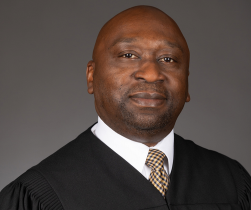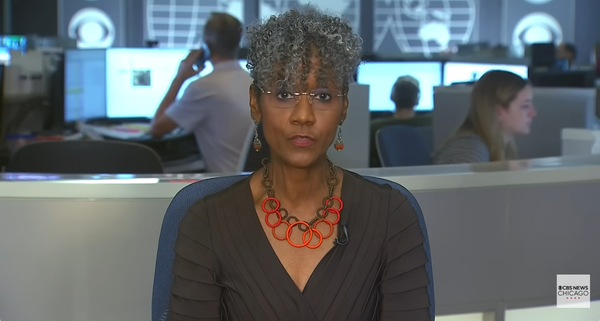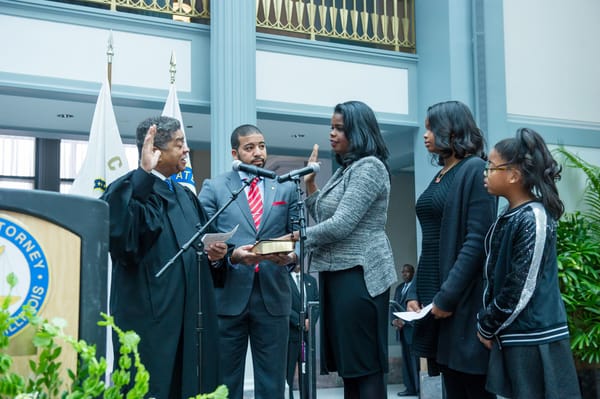'You might have to hold your nose, and then pull the lever,' activists say
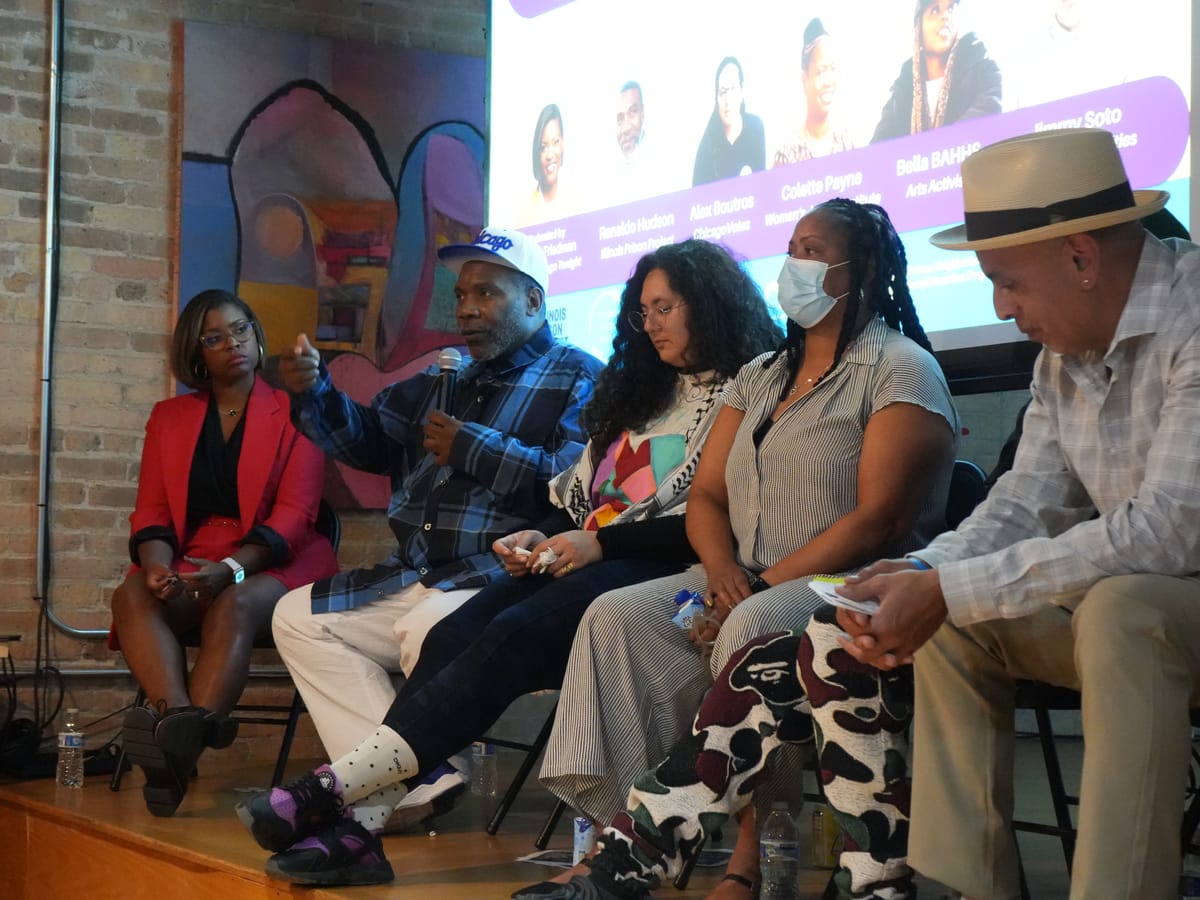
Community activists working on criminal justice issues were ambivalent about their choices for the next occupant of the White House and doubtful either of the candidates in the presidential race would have an impact on local concerns.
"I think he who will go without a name clearly shows America that he cares nothing about us. There's no way I can imagine ever, ever, ever, EVER voting for that dude." Renaldo Hudson, director of education for the Illinois Prison Project said.
"I would love to see a woman of color become president of the United States. [Harris] comes with a whole lot of baggage. She comes with a background of prosecuting people. She had the opportunity to get people off death row. She did not. I think that the other side is stoking the flames of racism," Jimmy Soto, a fellow at the University of Chicago Center for the Study of Race, Politics & Culture said.
"I know what I want, but I don't know what they are going to provide," Colette Payne, director of the Women's Justice Institute said. "We think that when we put someone in office who looks like us, they're gonna save us when it actually takes us to save us."
Illinois Prison Project, Center for the Study of Race, Politics & Culture, Chicago Votes, Women's Justice Institute, Woods Fund and Prison + Neighborhood Arts Project hosted the program one week before Election Day, which was livestreamed by Public Media Institute.
The discussion grew out of conversations about what is missing in the national conversation on mass incarceration that started over the summer as the city of Chicago prepped to host the Democratic National Convention.
On night four of the DNC, members of Central Park 5 endorsed Vice President Kamala Harris to serve as the next president of the United States saying that the former prosecutor is a better choice than the former president, who while in office signed legislation that shortened sentences for federal inmates convicted of non-violent crimes.
In 1989, Trump paid thousands of dollars for full page ads calling for the death penalty for the five who as teens ultimately were wrongfully convicted of attacking an investment banker as she jogged through New York City's Central Park. In October the men filed a defamation lawsuit against Trump for falsely stating during the presidential debate in September, that the five “badly hurt a person, killed a person” and told the audience of millions watching the debate that the teens pled guilty.
Harris, as California's attorney general in 2010, denied Kevin Cooper's request for advanced DNA testing that could exonerate him of killing of four people in San Bernadino County in 1983. Cooper was convicted even as there were reports that three white men committed the murders and there was evidence of police planting incriminating evidence at the crime scene.
Eight years later as U.S. senator, Harris put out a statement on Facebook expressing her support for advanced DNA testing for Cooper's case. In an August 2024 letter written from his prison cell Cooper said that he has forgiven Harris and asked that her opponents not use his case to attack her.
Still, Hudson expressed concerns about the vice president's campaign messaging.
"I would love that [Harris] would not use the narrative of the prosecutor president," said Hudson, who spent 7 years in the Cook County jail, 13 years on death row in Illinois and another 17 serving life without the possibility of parole, before his sentence was commuted a second time to time served in 2020 by Illinois governor J.B. Pritzker.
"I think that that's an offense to someone like me who has offended but also has now worked toward healing. I would love for [Harris] to say my background was in prosecuting, my job is to serve the people."
Moderator Brandis Friedman, chief correspondent for Chicago Tonight and Black Voices on WTTW cited statistics from a Marshall Project survey of 54,000 people behind bars that suggest that inside prisons and jails, a significant majority of men would cast a vote for Donald Trump. Respondents for this survey include people housed in 785 prisons and jails in 45 states and the District of Columbia.
In response, Hudson noted that a majority of incarcerated people struggle with literacy challenges that impact their ability to evaluate candidates on the ballot. He also cited the psychology of abuse as a reason for support for the former president.
"This particular person understands me even though they abuse me," Hudson said, describing what he observed while incarcerated during Trump's 2016 run for the presidency.
"Our civic education in the country is horrid," Alex Boutros an organizer with Chicago Votes said, adding that incarcerated people are not the only people challenged with choosing the best candidate.
"People don't know the difference between a senator and a governor and a majority of people have no idea how our judicial system works or how policy is passed.
One in six adults in the U.S. were unable to name a branch of government and only 1 in 20 adults could name the five rights protected by the first amendment, according to an annual civics knowledge survey conducted by the Annenberg Public Policy Center at the University of Pennsylvania in 2023.
Raptivist Bella BAHHS had a more artful response to support for Trump among Black communities.
"I'm so sick of people telling me that Trump gave us some money," BAHHS said. "If that ain't desperation I don't know what that is. Why are you talking to me about $600 from four years ago." The spoken word artist also said that support for Trump in this race results from attitudes among some males against seeing a female claim the nation's high seat of power.
Specific issues for the justice-involved community include poverty, lack of access to healthcare and housing. But rather than depending on elected officials, the panelists expressed the need for the community to band together to resolve its own issues.
"No one's giving us universal healthcare," Boutros said. "If we are ever looking to our federal government for any type of savior, that is the trick and we'll continue to lose our people."
Advocates also are interested the candidate's position on the death penalty and on clemency for people convicted of non-violent, drug-related crimes who are away from their families for many years due to mandatory sentencing guidelines.
"Families are being destroyed," Payne said, noting that some people, such as Alice Marie Johnson, received clemency during former President Trump term in office. "Women in particular with children. They get this huge amount of time. They are looking for a way to rejoin their families."
With 143 pardons in his four years in office, 116 of them during his final month in office in January 2021 and 94 commutations, Trump used the power of clemency less frequently than nearly every other president since the turn of the 20th century, according to the Pew Research Center. During his two terms in office Barack Obama issued 212 pardons and commuted 1,715 sentences.
Despite their skepticism, activists still plan to cast their ballots on Nov. 5th.
"Of course, I'm gonna vote because my ancestors want me to exercise my right because we did not have that right," Payne said.
"But I bet you I ain't voting for Trump."
